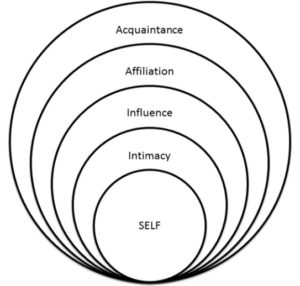Each one of us have had the experience multiple times of being asked a question that we don’t want to answer. This happens in our professional and personal life, and we often don’t know how to proceed quickly or gracefully.
Essentially, the reason you don’t want to answer a question is what gives you your strategy for responding:
• The asker has not earned the right to have that question answered due to the level of personal relationship they have with you.
• The asker has not earned the right to have that question answered due to the level of professional relationship they have with you, or the professional need for the information.
• The asker has a question about someone else, and is asking for gossip fodder
Personal Questions
Normally, the reason you don’t want to answer the question is because it is inappropriate, goes over a personal boundary, or is asking something that the person has not earned the right to know. So, it’s no wonder that you want to dodge the question.
Who has earned the right to know? Perhaps the following exercise will help you be decisive in internally answering this question. Create 4 or five concentric circles with you in the center. Put in the circles what you would be willing to disclose or not be willing to disclose to people that are intimates, those that influence you, those you have an affiliation with, and those that are acquaintances. Once you have made these decisions, you will be able to respond to dubious questions quickly.

The best way I have found to handle this type of situation gracefully is to ask, “What an interesting question. Why do you ask?” The trick behind answering a question with a question is to force the asker to get clear about what they are asking and why, or get them to understand gracefully that the question is not appropriate. The more questions you respond to with a question, the faster they’ll get to that point.
Eventually they may wise up to this strategy, but by then they realize this is a question you are not going to answer. During this conversation however, you have held your boundary and you have handled it without being rude, condescending, or angry.
Professional Questions
In a professional environment, some questions are asked to find out business information the asker shouldn’t be privy to, or how you feel about a situation at work, or to find out personal information about you or others, or add your answer to the rumor mill.
Who has earned the right to get an answer? Perhaps the following exercise will help you be decisive in internally answering this question. Create 4 or five concentric circles with you in the center. Put in the circles who you would be willing to disclose professional information to. You are in the middle of the circle. Your influence on them, and theirs on you lessens the further out the circle is.

If the asker doesn’t have a need to know, your response can be, “I am not authorized to give you that information. You’ll have to ask your supervisor.” If they are trying to find out how you feel about a work situation you can answer, “I’m not sure. It’ll take further consideration.” If they are trying to find out personal information, your response is, “I have a policy about not talking about my personal life at work.” If they are trying to get you to add to the rumor mill your response is, “I deal only in facts, not rumor.”
Additional Tips
• A calm demeanor is essential. Your ability to keep your body and facial language under control lends credibility to your response. Many times, the fact that you show yourself to be unflustered stops the line of questioning.
• Don’t appear as if you’re dodging the question by using filler words (ums ahs, prolonged silences). Have in your mind some stock answers to inappropriate questions, and make sure you practice them.
• If it gets to the point where the person continues to harangue you and won’t let go, a simple, “I am not answering that question.” If they ask why, turn it back to them and ask,” Would you answer that question if I asked it of you?
A Word About Gossip
Serial gossipers are generally insecure, unhappy, or envious. They need to spread gossip to push themselves up by pushing others down. In a personal situation, gossip can lead to broken relationships and severe depression. In professional setting, gossip untamed can lead to low morale, lessened productivity, and lawsuits. Gossip will always backfire. Everyone at work must be empowered to stop gossip in its tracks, and management needs to lead the way. Gossipers normally start a conversation with a question to draw you into their gossip drama. In the following situation, to avoid being sucked into the gossip maelstrom, answer the question “Hey, Jane just bought a big house. How can she afford it on her salary?” with, “I don’t answer questions about what is going on with other people. It is best to ask Jane yourself.” This prevents you from becoming an actor in what is known as the Gossip Triangle. Don’t get caught in the middle!



